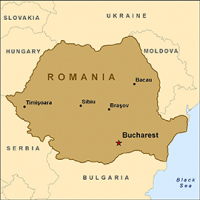 A national patent may be granted when the subject belongs to a field of technology, is new, involves an inventive step and is susceptible to industrial application.
A national patent may be granted when the subject belongs to a field of technology, is new, involves an inventive step and is susceptible to industrial application.
Lexology provided the legal information, which said that computer programmes are always protected by copyright, while patents are not granted to software “to the extent that the patent application or patent relates to a computer programme”.
New methods solving technical problems are patentable, while business methods as such are not. A grace period of six months is available for two specific cases of non-prejudicial disclosure, meaning disclosure of an invention before the date of filing the application is not part of the state of the art when it was due, or in consequence of an evident abuse in relation to the applicant or processor, or the invention being displayed at an officially-recognised international exhibition.
Revocation requests can be filed within six months of the patent’s publication, but can only be based on the subject being unpatentable, the invention not being disclosed clearly enough for a skilled person in the art to carry it out, or the patent’s subject matter exceeding the content of the application as filed.
Patents are granted in between two and a half years and three and a half years from the date of filing the application, and official fees for an application of no more than 20 pages with no more than five claims is around €1,200 ($1,316), which includes the official fee for the first five years of protection.
Judges deciding on infringement cases as a rule have no technical expertise, while the Bucharest Tribunal is the sole first-instance court with jurisdiction to invalidate patents in Romania, which does have a specialised section for civil and IP cases. Preliminary injunctions are available if the patent holder can show the case is urgent, non-prejudicial on its merits and is temporary, until the adjudication of the merits of the case. Case laws or judicial precedents from other jurisdictions are not recognised as a source of law, although they may be submitted as written evidence.
Trial costs are “generally recoverable” from the losing party, usually consisting of attorneys’ fees and other expenses. The successful plaintiff is entitled to damages, with infringers typically barred from continuing or repeating the infringing act and illicit products recalled, seized and destroyed, along with, at times, the equipment used in their manufacture. Imprisonment and criminal fines are also possible.
Warning letters are typically sent to the alleged infringer prior to coming to court, which could allow the two parties to settle before this stage. Lexology said that “a considerable number of patent infringement cases are settled amicably”.
